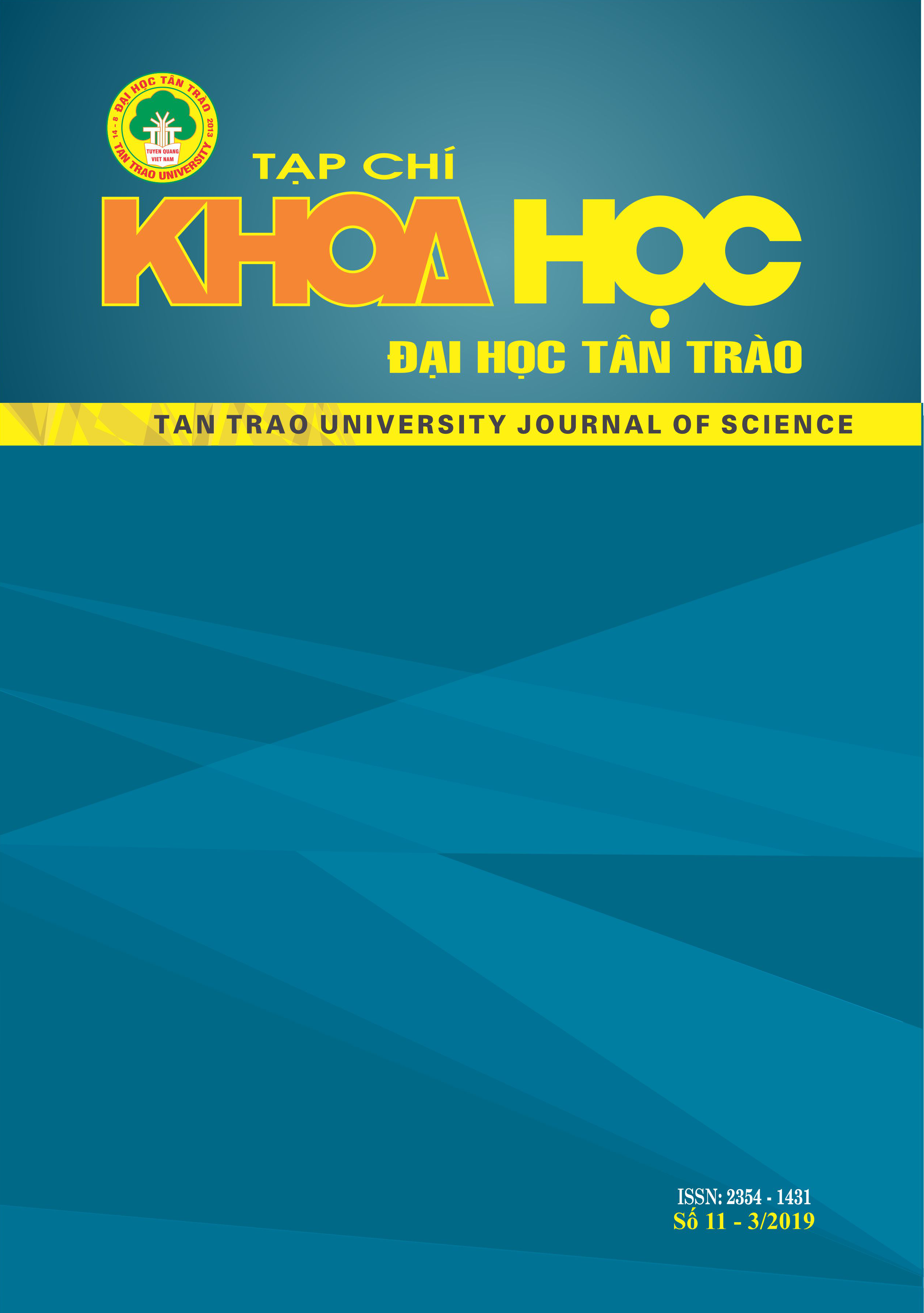Researching Ho Chi Minh’s thought about revolution in the "Revolution Road"
DOI:
https://doi.org/10.51453/2354-1431/2019/198Keywords:
Revolution; Revolution Road; Ho Chi Minh.Abstract
"Revolution Road" - President Ho Chi Minh's outstanding theoretical work, is an invaluable asset of the Party and people of Vietnam. The work was a scientific and thorough reflection on the fundamental issues of the Vietnamese revolution and the revolution in the world such as the theory of revolution, the organization of the International Communist, the Congress, the cooperative ... Contributing to the success of the revolutionary movement in Vietnam. This article focuses on researching and clarifying Ho Chi Minh's thoughts on the revolution through his work "Revolution Road".
Downloads
References
1. Bộ Giáo dục và Đào Tạo (2006), Giáo trình Lịch sử Đảng Cộng sản Việt Nam (dùng cho các trường đại học, cao đẳng), Nxb Chính trị Quốc gia, Hà Nội;
2. Đảng Cộng sản Việt Nam (1998) Văn kiện đảng Toàn tập, tập 1, Nxb Chính trị Quốc gia, Hà Nội;
3. Đảng Cộng sản Việt Nam (1998), Văn kiện đảng Toàn tập, tập 2, Nxb Chính trị Quốc gia, Hà Nội;
4. Đinh Xuân Lý (2008), Quá trình vận động thành lập Đảng Cộng sản Việt Nam, Nxb Chính trị Quốc gia, Hà Nội;
5. Hồ Chí Minh (2000), Toàn tập, tập 1, Nxb Chính trị quốc gia, Hà Nội;
6. Hồ Chí Minh (2000), Toàn tập, tập 2, Nxb Chính trị quốc gia, Hà Nội.
Downloads
Published
How to Cite
Issue
Section
License

This work is licensed under a Creative Commons Attribution-ShareAlike 4.0 International License.
All articles published in SJTTU are licensed under a Creative Commons Attribution-ShareAlike 4.0 International (CC BY-SA) license. This means anyone is free to copy, transform, or redistribute articles for any lawful purpose in any medium, provided they give appropriate attribution to the original author(s) and SJTTU, link to the license, indicate if changes were made, and redistribute any derivative work under the same license.
Copyright on articles is retained by the respective author(s), without restrictions. A non-exclusive license is granted to SJTTU to publish the article and identify itself as its original publisher, along with the commercial right to include the article in a hardcopy issue for sale to libraries and individuals.
Although the conditions of the CC BY-SA license don't apply to authors (as the copyright holder of your article, you have no restrictions on your rights), by submitting to SJTTU, authors recognize the rights of readers, and must grant any third party the right to use their article to the extent provided by the license.


